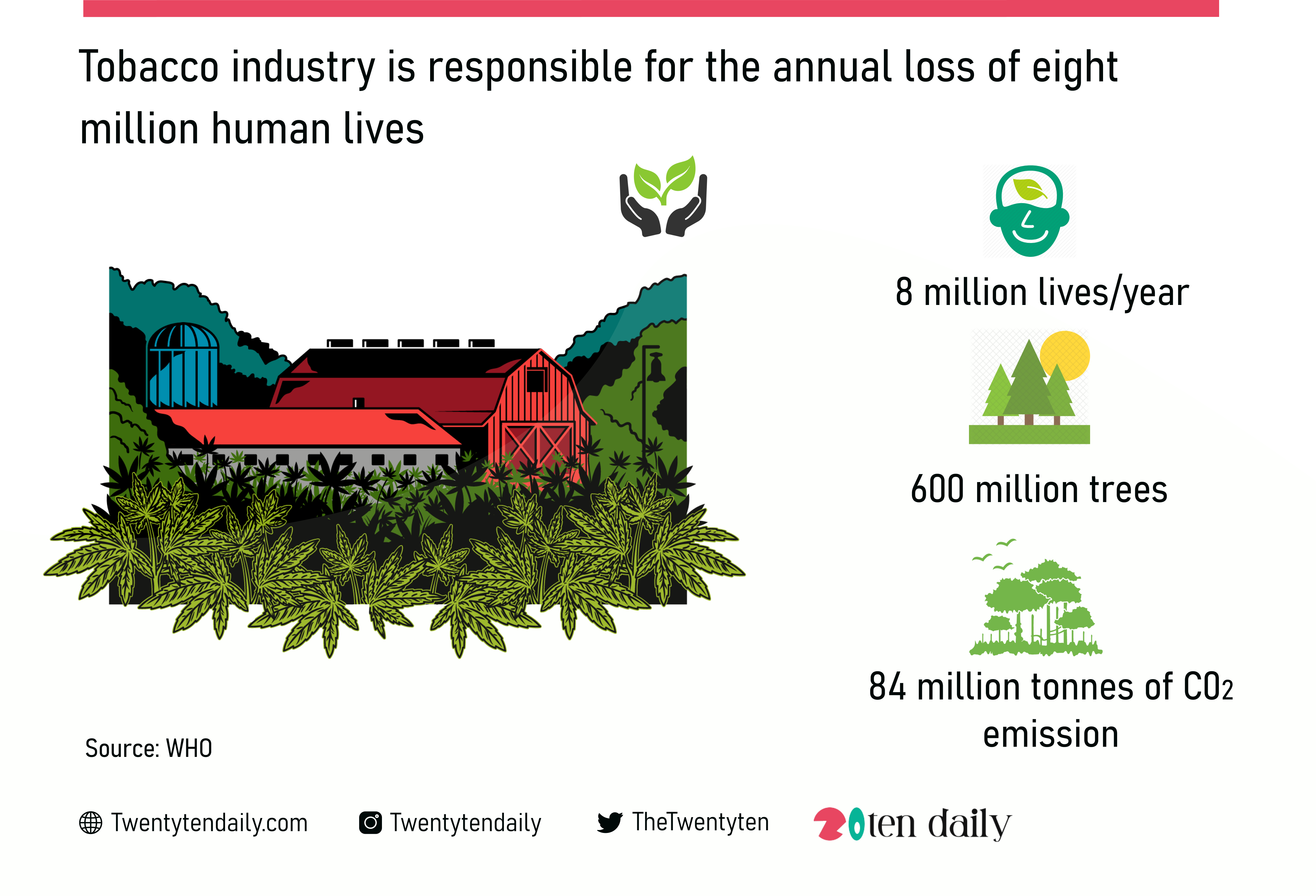The World Health Organization has warned about the damaging effects of the tobacco industry on the environment, from leaving mountains of waste to driving global warming.
The report by WHO on Tobacco waste titled: Poisoning Our Planet, published on Tuesday to coincide with World No Tobacco Day, outlined new findings on the extent to which the tobacco industry is harming both the environment and human health.
The report shared that the tobacco industry is responsible for the annual loss of eight million human lives, 600 million trees, 200,000 hectares of land, 22 billion tonnes of water, and releases about 84 million tonnes of CO2 into the Earth’s atmosphere.

The WHO found that the carbon footprint from production, processing and transporting tobacco is equivalent to one-fifth of the CO2 produced by the commercial airline industry each year, further contributing to global warming.
“Tobacco products are the most littered item on the planet, containing over 7,000 toxic chemicals, which leech into our environment when discarded”, Ruediger Krech, WHO director of health promotion told reporters.
He pointed out that each one of the estimated 4.5 trillion cigarette butts that end up in our oceans, rivers, sidewalks and beaches every year can pollute 100 litres of water.
And up to a quarter of all tobacco farmers contract so-called green tobacco sickness or poisoning from the nicotine they absorb through the skin.
Farmers who handle tobacco leaves all day consume the equivalent of 50 cigarettes worth of nicotine a day, Krech said. This is especially worrying for the many children involved in tobacco farming.
In addition, products like cigarettes, smokeless tobacco and e-cigarettes also contribute significantly to the global build-up of plastic pollution, WHO warned.
Cigarette filters contain microplastics – the tiny fragments that have been detected in every ocean and even at the bottom of the world’s deepest trench – and make up the second-highest form of plastic pollution worldwide, the report said.
The WHO has called for the implementation of stronger tobacco taxes, including an environmental tax for countries to extend support services to help people quit tobacco.
Earlier this year, the United Nations Intergovernmental Panel on Climate Change (IPCC) released a report, noting that nearly half the world’s population was already vulnerable to increasingly dangerous climate effects.

